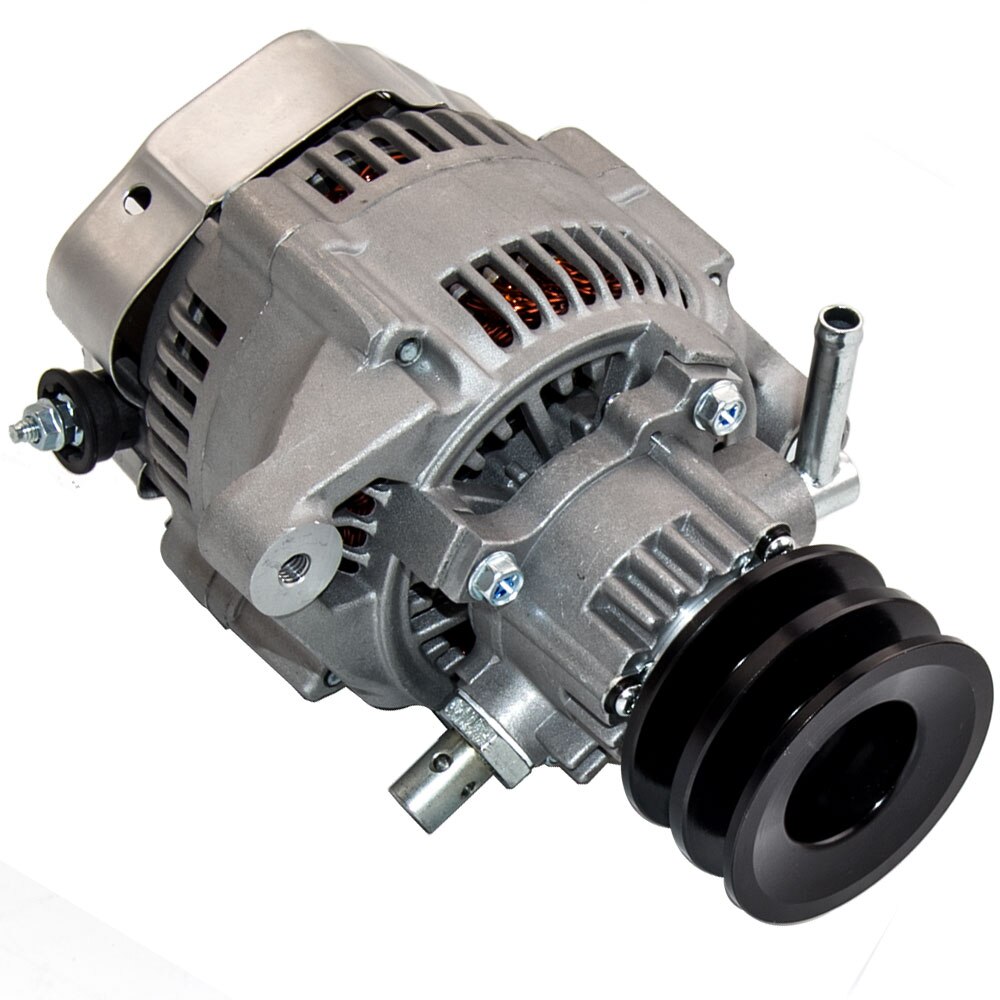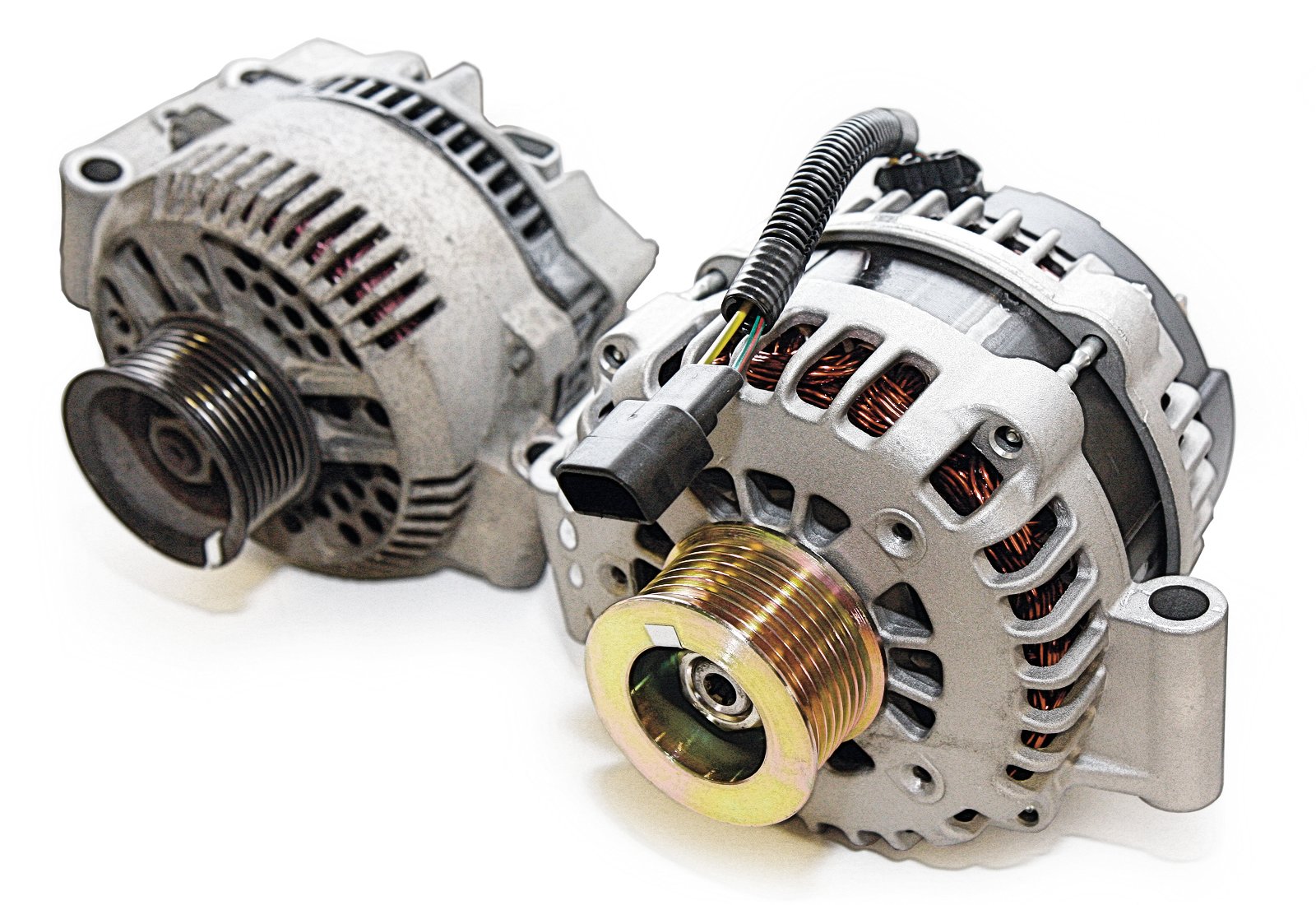Your Toyota Hilux alternator is one of the most important components of your vehicle, providing power to your car’s electrical system and charging the battery as you drive. It’s essential to keep your engine running and prevent getting stranded. In this blog post, we’ll explore everything you need to know about the Toyota Hilux alternator, from how it works to how to troubleshoot it. Keep reading to ensure you get the most out of your Hilux and stay on the road!
What is a Toyota Hilux alternator, and how does it work?
The Toyota Hilux alternator is a vital component of your vehicle’s electrical system, responsible for generating electricity and charging the battery as you drive. It plays a crucial role in keeping your engine running smoothly and preventing you from being stranded on the side of the road.
So, how does it work? When your Hilux’s engine is running, the alternator is driven by a belt connected to the engine’s crankshaft. This belt causes the alternator to spin, creating an alternating current (AC) within the alternator. This AC is converted into a direct current (DC) through a rectifier. The rectifier comprises diodes that allow the current to flow in one direction.
Once the electricity is converted to DC, it is used to power the various electrical components of your Hilux, such as the lights, radio, and power windows. Additionally, the alternator charges the battery, ensuring it remains fully charged and ready to provide power when needed.
To summarize, the Toyota Hilux alternator converts the mechanical energy from the engine into electrical energy, which powers the vehicle’s electrical system and charges the battery. Without a functioning alternator, your Hilux’s electrical components would not work properly, and your battery would quickly drain.
The next section’ll examine the specific alternator used in the 3RZ-FE Hilux and discuss its unique features.
 3RZ-FE Hilux Alternator
3RZ-FE Hilux Alternator
The 3RZ-FE Hilux alternator is a specific type used in Toyota Hilux vehicles equipped with the 3RZ-FE engine. It shares many similarities with other alternators but also has some unique features.
One of the key features of the Hilux alternator is its power output. This alternator is designed to provide sufficient power to meet the electrical demands of the Hilux, even when driving in challenging conditions or with additional accessories. This means that even if you have added aftermarket lights, a winch, or other electrical accessories to your Hilux, the 3RZ-FE alternator should be able to handle the increased load.
Another important feature of the Hilux alternator is its durability. Toyota is known for producing reliable vehicles, and the alternator is no exception. With proper maintenance and care, the 3RZ-FE alternator should last many years without any major issues. However, like any mechanical component, it is still susceptible to wear and tear over time.
If you need to replace your Hilux alternator, it’s important to make sure you choose a genuine Toyota part or a high-quality aftermarket option. Using a subpar alternator can lead to poor performance, decreased electrical output, and potential damage to other components of your vehicle’s electrical system.
Overall, the Hilux alternator is a crucial component of your vehicle’s electrical system, providing the power needed to keep your engine running and your electrical components functioning properly. With its high power output and durability, this alternator is designed to meet the demands of the Toyota Hilux and keep you charging ahead on the road.
Signs that your alternator might be failing
The Toyota Hilux alternator is a reliable component that keeps your vehicle running smoothly. However, like any part of your car, it can experience issues over time. Recognizing the signs of a failing alternator is crucial to avoid being stranded on the side of the road.
One of the most common signs of a failing alternator is dimming or flickering lights. If your headlights or interior lights are not as bright as usual or if they flicker intermittently, it may indicate a problem with your alternator. This happens because the alternator is not providing enough power to the electrical system.
Another sign to watch out for is a dead battery. If your battery frequently dies or needs to be jump-started, it could be a sign that the alternator is not properly charging it. Your alternator should recharge the battery as you drive, so if the battery is consistently low, it may be time to have your alternator checked.
Unusual noises can also be an indication of a failing alternator. If you hear a grinding or whining sound coming from the engine compartment, it could be a sign of a worn-out alternator bearing. This can cause the alternator to spin unevenly and produce noise.
Other signs to look out for include difficulty starting the engine, electrical issues such as malfunctioning power windows or radio, and a burning smell coming from the alternator.
If you notice any of these signs, it’s important to have your Toyota Hilux alternator inspected and repaired as soon as possible. Ignoring the problem can lead to further damage to your vehicle’s electrical system and potentially leave you stranded on the road. So, pay attention to these signs and take action to keep your Hilux running smoothly and avoid any unnecessary breakdowns.
Common issues with the Toyota Hilux alternator
The Toyota Hilux alternator is a reliable and durable component of your vehicle’s electrical system. However, like any mechanical part, it can experience issues over time. It’s important to be aware of common problems that can arise with the Toyota Hilux alternator, so you can address them before they lead to more serious issues.
One common issue with the Toyota Hilux alternator is a worn-out or faulty bearing. The alternator contains a bearing that allows it to spin smoothly. Over time, this bearing can wear out or become damaged, resulting in noise or vibration. If you hear a grinding or whining sound coming from the engine compartment, it’s a good indication that your alternator bearing may need to be replaced.
Another issue that can occur is a malfunctioning voltage regulator. The voltage regulator is responsible for regulating the electrical output of the alternator. If it becomes faulty, it can either overcharge or undercharge the battery, leading to electrical problems in your vehicle. This can result in dimming or flickering lights, a dead battery, or difficulty starting the engine.
Additionally, a worn-out or damaged pulley can cause problems with the Toyota Hilux alternator. The pulley is connected to the belt that drives the alternator. If the pulley becomes worn or damaged, it can cause the belt to slip, resulting in decreased power output from the alternator.
Lastly, corrosion or loose connections can affect the performance of the Toyota Hilux alternator. Corrosion on the terminals or loose connections can disrupt the flow of electricity, leading to issues with charging the battery or powering the vehicle’s electrical components.
If you experience any of these common issues with your Toyota Hilux alternator, it’s important to have it inspected and repaired by a qualified technician. Addressing these problems promptly can prevent further damage to your vehicle’s electrical system and ensure that you stay on the road without any unexpected breakdowns. Remember to prioritize regular maintenance and inspections to keep your Toyota Hilux alternator functioning at its best.
When to replace your Toyota Hilux alternator?
Your Toyota Hilux alternator is a durable and reliable component, but like any mechanical part, it will eventually need to be replaced. Knowing when to replace your alternator is essential for avoiding unexpected breakdowns and keeping your Hilux running smoothly.
One key factor to consider is the age of your alternator. On average, alternators have a lifespan of around 7 to 10 years. If your Hilux is approaching or exceeding this timeframe, it’s a good idea to have your alternator inspected and consider replacing it as a preventative measure. Additionally, if you have noticed any signs of a failing alternator, such as dimming lights, a dead battery, or unusual noises, it’s important to address the issue promptly and consider replacing the alternator.
Another factor to consider is the mileage on your vehicle. Alternators can be affected by the amount of use they endure, so if your Hilux has a high mileage, it may be more susceptible to alternator issues. In this case, it’s a good idea to have your alternator inspected regularly and consider replacing it if any issues are detected.
It’s also important to consider the quality of the alternator. Genuine Toyota alternators are designed specifically for your Hilux and are likely to provide the best performance and longevity. However, high-quality aftermarket alternators can also be a good option. If you’re experiencing frequent alternator issues or if your alternator has already been replaced with a lower quality part, it may be worth considering an upgrade to a higher quality alternator.
Ultimately, the decision of when to replace your Toyota Hilux alternator depends on a combination of factors such as age, mileage, and performance. If you have any doubts or concerns about your alternator, it’s always best to consult with a qualified technician who can assess the condition of your alternator and provide expert advice on when replacement is necessary. By staying proactive and replacing your alternator when needed, you can ensure that your Hilux remains reliable and keeps you on the road for years to come.
FAQs
As you’ve learned about the Toyota Hilux alternator and how it works, you may have some questions. Don’t worry, we’ve got you covered! Here are some frequently asked questions about the Toyota Hilux alternator:
- How long does a Toyota Hilux alternator typically last?
On average, a Toyota Hilux alternator can last anywhere from 7 to 10 years. However, this can vary depending on factors such as driving conditions and maintenance.
- Can I use a non-genuine Toyota alternator for my Hilux?
While it is possible to use a non-genuine alternator, we highly recommend using a genuine Toyota alternator or a high-quality aftermarket option. These alternatives are designed to meet the specific requirements of your Hilux and ensure optimal performance and longevity.
- How much does it cost to replace a Toyota Hilux alternator?
The cost of replacing a Toyota Hilux alternator can vary depending on several factors, such as the model year and whether you choose a genuine Toyota part or an aftermarket option. It’s best to consult with a qualified technician for an accurate estimate.
- Can I replace the alternator myself, or do I need a professional?
While it is possible to replace the alternator yourself if you have the necessary knowledge and tools, we recommend seeking the assistance of a qualified technician. They have the expertise and experience to properly diagnose and install the alternator, ensuring it is done correctly.
Conclusion
In conclusion, the Toyota Hilux alternator is a vital component that plays a crucial role in keeping your vehicle running smoothly. From generating electricity to charging the battery, the alternator ensures that your electrical system is functioning properly and that you won’t get stranded on the side of the road.



